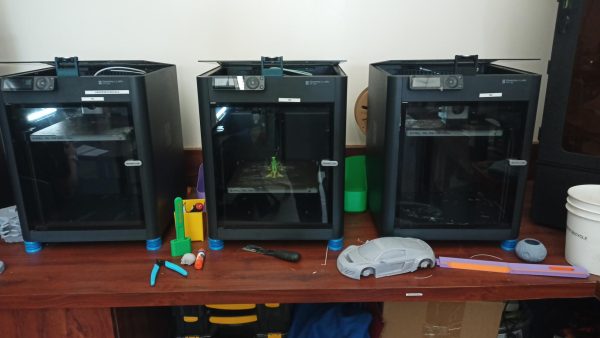What we all can do to reduce waste
October 22, 2019
It’s understandable that as students, sustainability is the last thing on our minds. It is a time consuming lifestyle choice to partake in, but it is also worth it in the long run.
It is also easy to get started with. When I began going zero-waste, it was just a basic Google search to see what reusable items I could find to replace my most-used items that are not so eco-friendly.
Here are some ways to reduce your waste:
1. Replace commonly used hygiene and beauty products.
I found that the most common things, like shampoo, conditioner and body wash, were extremely wasteful. Instead of buying my products packaged in plastic, I began purchasing them from stores like LUSH that produce shampoo and conditioner bars.
For face wash, it is best to purchase it packaged in glass or a cleansing bar. Most of these products are also packed with natural, nourishing ingredients, so not only are you improving the environment, but also your skin and hair.
Cotton pads were something I used daily and I saw myself going through so many in just a few weeks. On Amazon, I purchased a set of reusable cotton pads that came in a small laundry bag. Once they’ve all been used, all you have to do is throw the bag in the washer along with your laundry and they’re ready to be used again.
Purchase a natural deodorant in biodegradable packaging or glass jar. Meow Meow Tweet is the brand that I have found works best for me because it’s affordable and available in most stores.
For women, menstrual products that are zero-waste can be difficult to find. Instead of buying a new box of tampons or pads every month, try purchasing a menstrual cup or reusable pads. Items like these are easily accessible and last much longer than single-use items.
2. Reduce your carbon footprint.
It is a challenge to completely stop driving your car all together, but there are ways to transition into other forms of transportation.
I have the luxury of living near campus, so I try to bike as often as I possibly can, but it can get difficult at times with the heat and a busy schedule.
Take the challenge to ride the bus for a week, or to carpool to campus with some friends. This way, you’re reducing the amount of carbon dioxide being released into the atmosphere.
CSU Bakersfield is now also providing a new service to students, a Tesla vanpool. Students, staff and faculty can request to use the service when it is available.
Electric scooters are also popular right now, and available all over Bakersfield. Instead of driving to the Marketplace or to the supermarket, try taking a scooter to make the trip quicker and cleaner.
3. Food can produce a lot of trash.
When was the last time you remember buying food that wasn’t given to you in plastic packaging? It is hard to find items at the store that are sustainable. To reduce the amount of trash you produce, try buying food in bulk or from a farmers market.
“First, it’s understanding where your trash is coming from and where you’re making the biggest trash,” said Stephanie Magaña, CSUB Associated Students, Inc. Director of Sustainability.
She said to try reusing the jars and plastic containers you get from the food you eat. Instead of tossing the jam jar, reuse it to store something. It is better to clean out the jar for reuse instead of buying new jars from the store.
When buying coffee at your nearest Starbucks, bring your own cup and you’ll receive a 10 cent discount off your drink. Even taking a metal straw with you in your bag can help reduce the amount of straws that are used on a daily basis.
Another way to reduce waste is making your own versions of the products you use often. If you eat strawberry jam often, try your own homemade recipe. It might turn out to taste better than the store bought item, and be better for your health.
There are plenty of sustainable food sources available to students. The Haggin Oaks Farmers Market takes place every Sunday from 9 a.m. to 2 p.m. at the Marketplace. The CSUB Food Pantry is open every weekday and is available to all students, staff and faculty. They provide the campus with free fresh produce and other food items.
Being sustainable and zero-waste takes dedication and awareness, but it is not an impossible concept to achieve. The idea of being zero-waste is becoming more popular and more accessible.
Trying out the small things can make a huge difference on the environment and your quality of life.






